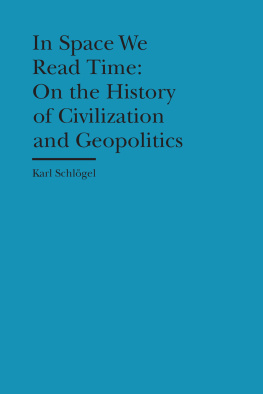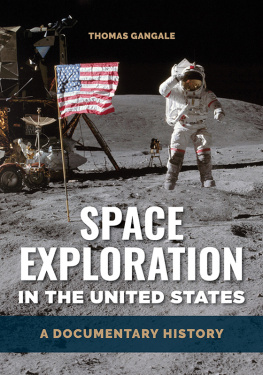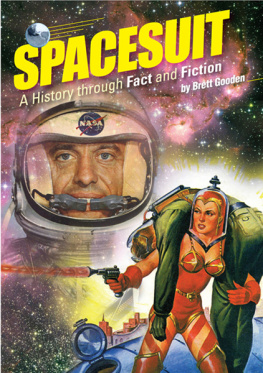CULTURAL HISTORIES OF THE MATERIAL WORLD
Cultural Histories of the Material World is a series centered on the exploration of the material turn in the study of culture. Volumes in the series examine the ways human beings have shaped and interpreted the material world from a broad range of scholarly perspectives and show how attention to materiality can contribute to a more precise historical understanding of specific times, places, ways, and means.
Peter N. Miller, Series Editor
Other books in the series include:
Antiquarianism and Intellectual Life in Europe and China, 15001800
Peter N. Miller and Franois Louis, Editors
The Sea: Thalassography and Historiography
Peter N. Miller, Editor
Cultural Histories of the Material World
Peter N. Miller, Editor
Ways of Making and Knowing: The Material Culture of Empirical Knowledge
Pamela H. Smith, Amy R. W. Meyers, and Harold J. Cook, Editors
The Anthropology of Expeditions: Travel, Visualities, Afterlives
Joshua A. Bell and Erin L. Hasinoff, Editors
Ex Voto: Votive Giving Across Cultures
Ittai Weinryb, Editor
Karl Schlgel is professor emeritus of Eastern European history at the European University Viadrina in Frankfurt/Oder. He is the author of Moscow 1937 (Polity, 2012).
Bard Graduate Center, New York 10024
2016 Bard Graduate Center.
All rights reserved. Published 2016.
Printed in the United States of America
25 24 23 22 21 20 19 18 17 16 1 2 3 4 5
ISBN-13: 978-1-941792-08-7
This book may not be reproduced, in whole or in part, including illustrations, in any form (beyond that copying permitted by Sections 107 and 108 of the U.S. Copyright Law and except by reviewers for the public press), without written permission from the publishers.
Published by Bard Graduate Center, New York City, and distributed by the University of Chicago Press. This book may be purchased in quantity for educational, business, or promotional use. For information, please e-mail .
Designed by Laura Grey
 This paper meets the requirements of ANSI/NISO Z39.48-1992 (Permanence of Paper).
This paper meets the requirements of ANSI/NISO Z39.48-1992 (Permanence of Paper).
Originally published as:
Im Raume lesen wir die Zeit: ber Zivilisationsgeschichte und Geopolitik
Carl Hanser Verlag Mnchen 2003
The translation of this work was funded by Geisteswissenschaften InternationalTranslation Funding for Work in the Humanities and Social Sciences from Germany, a joint initiative of the Fritz Thyssen Foundation, the German Federal Foreign Office, the collecting society VG WORT, and the Brsenverein des Deutschen Buchhandels (German Publishers & Booksellers Association).
Library of Congress Cataloging-in-Publication Data
Names: Schlgel, Karl.
Title: In space we read time : on the history of civilization and geopolitics / Karl Schlgel ; translated by Gerrit Jackson.
Other titles: Im Raume lesen wir die Zeit. English
Description: New York City : Bard Graduate Center, 2016. | Series: Cultural histories of the material world | Includes bibliographical references and index of personal names.
Identifiers: LCCN 2016011680 | ISBN 9781941792087 (hardback)
Subjects: LCSH: Civilization, Modern--History. | Geopolitics--History. | Geography--History. | Space and time. | History--Philosophy. | Historiography--Philosophy. | BISAC: ART / European. | TECHNOLOGY & ENGINEERING / Cartography.
Classification: LCC CB450 .S3513 2016 | DDC 909.82--dc23
LC record available at http://lccn.loc.gov/2016011680
ISBN-13: 978-1-941792-09-4 (electronic)
For Helmut Fleischer (19272012),
my philosophical friend and teacher
Series Editors Preface
THE PICTURES ARE EVERYWHERE AROUND US, and by now in us as well. The raggedly clad, the tired and poor, old and young, in small groups or large clumps. Walking, sleeping rough, clambering from boats, washed up on beaches. Migrants. Refugees. People on the move. All of them streaming out of the Middle East and North Africa and heading to Europe. The re-awakening of the Mediterranean after at least three centuries of marginalization is also a re-establishment of the Mediterranean as the border zone between Europe and an unsettled other. The distance between Izmir and Lesbos, or Libya and Pantelleria; the river valleys of Macedonia, and the train corridors to Viennafor many people this last year has been a geography lesson as well as a heartache.
A great historians vision can only with injury be reduced to a single phrase, but if we were to try this exercise with Karl Schlgel, we would settle upon the return of space. After early work on Soviet labor history he found his mtier in writing about cities. Two great books of city portraits, Moskau lesen (Reading Moscow; 1984) and Jenseits des groen Oktober: Das Laboratorium der Moderne, Petersburg 19091921 (Beyond the great October: The laboratory of modernism, St. Petersburg, 19091921; 1988) were followed by a series of books of essays, many of which began as feuilleton pieces for German newspapers, about the still-submerged cities of the Soviet Empire, places like Vilna or Lemberg or Czernowitz, whole histories still frozen in time. The title of the first of these collections, Die Mitte liegt ostwrts: Die Deutschen, der verlorene Osten und Mitteleuropa (The center lies to the east: The Germans, the lost East and Mitteleuropa; 1986) captures the newness of vision, but also the archaeological intelligenceslicing through time as though it were soil. His reportage in the summer of 1989 on the Polish markets that were springing up in West Berlin now reads like prophecy. As ferment and revolution washed over these cities, he returned again and again. He has a fantastic eye for the telling detail. No one will easily forget his description of a truck stop on the new German-Polish highway as a city of half a million people that would defeat any future archaeologist because physically containing only two kiosks, or his attention to the flea market six kilometers outside of Odessa as a kind of modern-day silk-road terminal with its mingling vendors from Central Asia and Poland.
The Spatial Turn had hit in the 1990s. But in 2003, with the publication in Germany of Im Raume lesen Wir die Zeit, Schlgel moved the discussion from theoretical generalities to the specificities of history. Translated here at long last into English, the present workIn Space We Read Timeis at once a historians book about the ways space tells as evidence, a history of the uses of space as historical evidence, a Germanists book about key German parts of this narrative (and key German theorists), and a twentieth-century Europeans relating to his own history through the experience of diverse spaces. For most peopleparticularly those who are not native German-speaking scholarsthis is all new. Even for those academics who feel that the spatial turn is old news, the stories Schlgel tells will be new. And now this bookthe practice of the historians craft at the highest levelwill be a cause for marvel to Anglophone audiences as well.
Who would have thought of using someones address book as a way to constitute a personal history of mobility? Yet Marlene Dietrichs migration story was etched into the strata of names and places in her diary. The penciled, clandestine map of the Kovno Ghetto, recorded at peril and saved by pure chance, opens a crack into the depths of a hell that now has longitude and latitude. The railway timetables of the Austro-Hungarian Empire reconstruct a mental map of a disappeared world in which the cities and towns of the past re-connect in ways that our present could not otherwise imagine. How many are the sources for studying the past! Ranke and his heirs might only have gone to government documents because they thought that what mattered was politics. But as one new door after another has been opened in the house of history a whole new array of sources has been added. The air of the past has freshened up.










 This paper meets the requirements of ANSI/NISO Z39.48-1992 (Permanence of Paper).
This paper meets the requirements of ANSI/NISO Z39.48-1992 (Permanence of Paper).